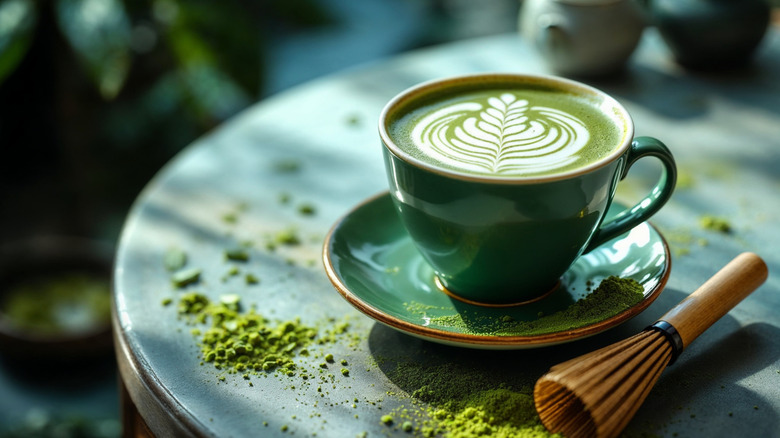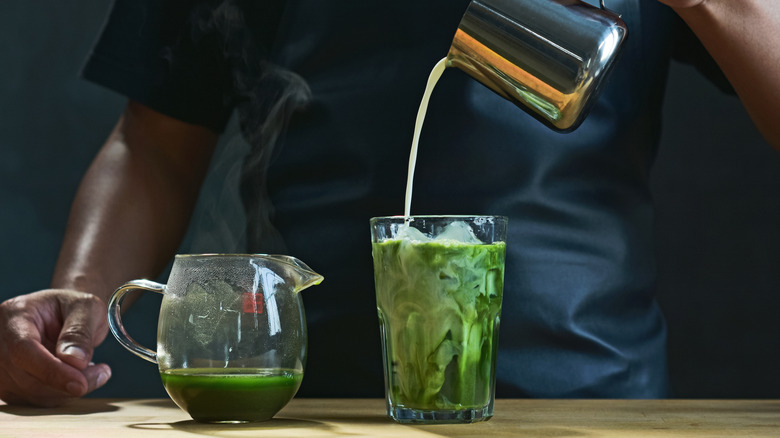How Much Caffeine Is In A Cup Of Matcha?
Matcha is now a ubiquitous drink in the United States, so popular, in fact, that Japanese production is struggling to keep up. Beyond the beverage, matcha is going through a bit of a culinary craze: matcha popcorn, anyone? But it's those lovely, vibrant, TikTok-friendly lattes that keep people buzzing. In addition to the high levels of antioxidants, flavonoids, and minerals, matcha is also packed full of caffeine.
You're looking at anywhere from 38 to 176 milligrams of caffeine in a typical serving of matcha. For comparison, black coffee clocks in around 100 milligrams, and normal green tea has about 20 to 90 milligrams — this is all per 8-ounce cup. Whether you're making matcha in the traditional Japanese style (whisked with hot water until smooth and frothy) and sipping it straight or pouring that green elixir over milk, it's still going to pack a caffeine punch.
Some people argue that matcha's caffeine is released more slowly in your body, lessening the negative impacts of caffeine when compared to coffee. While the level of caffeine in matcha will vary based on variety, amount of powder used, and brewing method, don't expect matcha to be your panacea — especially if you're sensitive to caffeine. Make sure to measure how many grams of matcha you need so your lattes taste great and you get the amount of buzz you're expecting.
What to do if the caffeine jitters take hold
Setting aside the delicious, vegetal, umami taste, matcha is still fairly high in caffeine. You can still experience the negative side effects associated with other caffeinated drinks, such as jitteriness, shakiness, irritability, anxiety, heart palpitations, sleep difficulties, and headaches. Consuming too much caffeine is often extremely uncomfortable, and while it is exceptionally rare, it can be fatal. Though we'd like to emphasize dangerous levels of caffeine are hard to attain, as even the Food and Drug Administration says that up to about 400 milligrams a day is perfectly safe.
The best thing to do when you're overcaffeinated is to cut off your caffeine intake and wait. Yes, much like being drunk, the best thing to do is wait it out — though if you experience intense symptoms, it's always best to seek medical attention. If you feel like you're bursting with energy, it's sometimes best to just get it out — try going on a walk. Though caffeinated beverages themselves are not dehydrating, drinking some water can help you feel better.
There's even a myth — particularly prevalent in the world of baristas — that a banana will help you overcome the caffeine jitters. This is false, though by all means, eat a banana if you want. Matcha is a wonderful drink with a rich history that proves this grassy, bright green potion has staying power — even if it can make you a little jittery.

